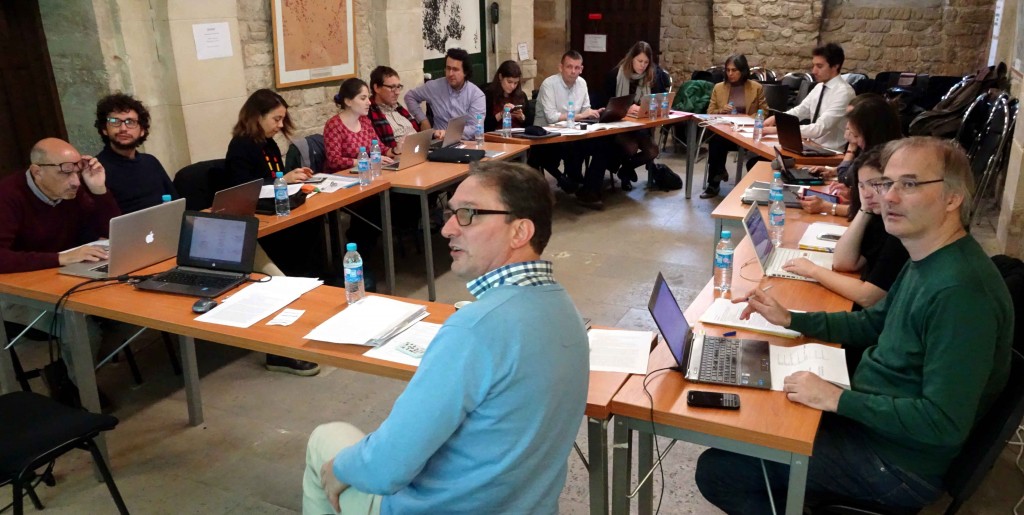On 18th -19th November, 2015, the TransSOL consortium had its second project meeting at the Centre for Political Research at Sciences Po Paris (CEVIPOF). At the meeting, the teams discussed the first findings about the political, legal and socioeconomic context of solidarity in times of economic crisis in all participant countries. Besides basic domestic characteristics, special emphasis was put on the legal and political framework and crisis-driven reforms in the fields of unemployment, disabilities and asylum. The aim of this first study is to unveil whether and to what extent the national context in its various traits has a beneficial or inhibiting impact on solidarity. This will enable us to understand better the cross-national variations in the extent and form of European solidarity at the levels of individual citizens, organisations and public discourses.
In addition, the teams discussed and planned the research steps of the next work packages. First of all, particular attention was dedicated to the second work package. Here, we will map, analyse and assess existing practices of solidarity in response to crisis, such as citizens’ initiatives and networks of cooperation amongst civil society actors. Moreover, we aim to engage with the individual and collective actors involved in these initiatives in order to promote knowledge exchange and deliberation about the crisis’s implications for European solidarity, on the one hand, and innovative responses, best practice models and policy implications, on the other hand. Secondly, the meeting in Paris was dedicated to the planning of the online population survey of the third work package. With this survey, we aim to measure the extent and forms of individual European solidarity, with regard to both attitudes and reported actions. At the same time, we will identify the sociodemographic factors influencing or mediating dispositions and acts of solidarity. This will allow us to assess if and how transnational solidarity is conditioned by individuals’ socioeconomic and professional statuses, political attitudes and behaviours, social relations and networks, lifestyle patterns, and feelings of wellbeing and belonging.

